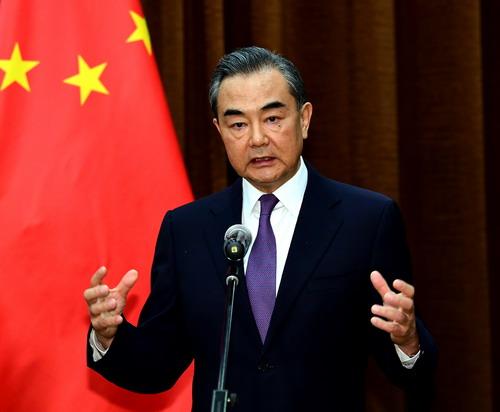
File photo
The world should come together to reject vaccine nationalism, promote fair and equitable distribution of vaccines, and in particular, make them accessible and affordable for developing countries, including those in conflicts, Chinese State Councilor and Foreign Minister Wang Yi said on Wednesday.
Wang made his remarks at a virtual meeting of the United Nations Security Council (UNSC) concerning the COVID-19 vaccine distribution.
"We must ensure that no country in need of the vaccines is left behind and no individuals waiting for vaccines are neglected," Wang said. Saying nothing matters more than the people and nothing is more valuable than human lives, Wang called for putting people front and center.
The Chinese foreign minister said countries need to replace division with solidarity and keep to the right path of cooperation at this moment.
He also called for earnestly implementing UNSC resolution to create an enabling environment for epidemic response.
It's important to ensure access to humanitarian assistance, especially for women, children, and other disadvantaged groups, Wang stressed.
China always opposes unilateralism without the UN's mandate, Wang said, adding that under the current circumstance, "we urge developed countries to show humanitarian spirits and at least suspend their unilateral sanctions and other forceful measures with no ground in international law."
Wang said that countries should enhance coordination and give full play to the UN system as it plays a central coordinating role in global actions against COVID-19. Countries should continue to give stronger political and financial support to the organization for it to effectively lead the largest vaccination operation in world history.
Wang also called for the world program United Nations International Children's Emergency Fund (UNICEF) and other related agencies to use their global shipping networks to build green channels for developing countries and, in particular, solve the "last-mile" problem for vaccine delivery in Africa.


